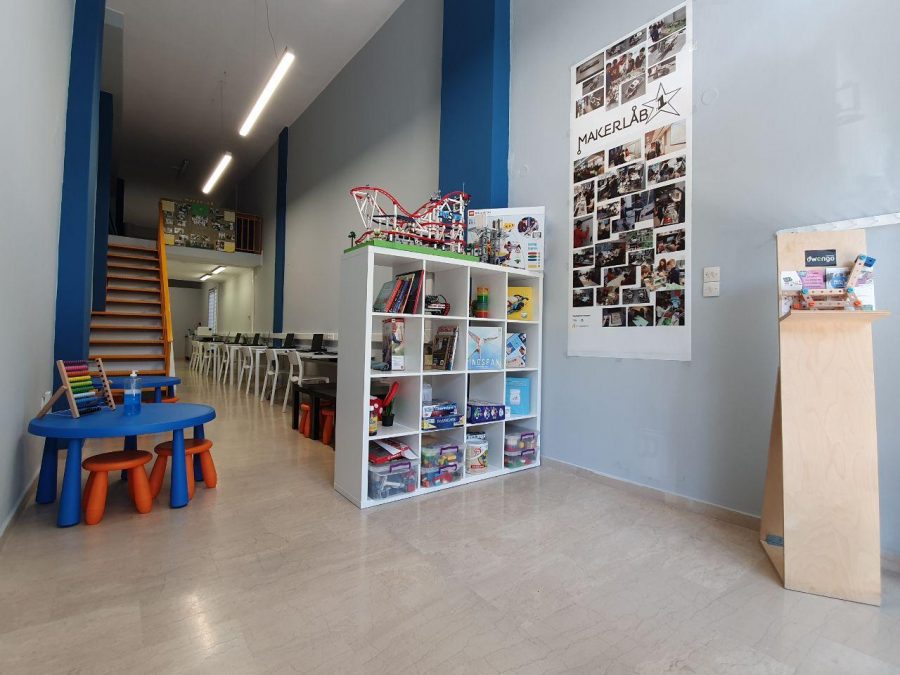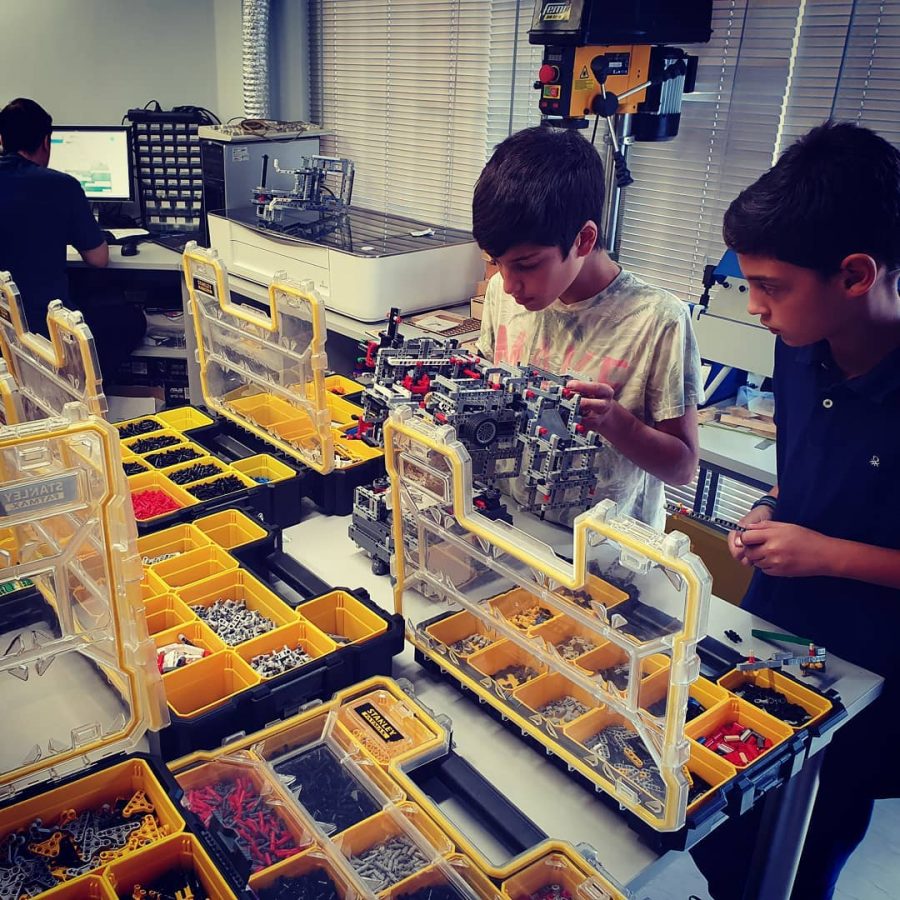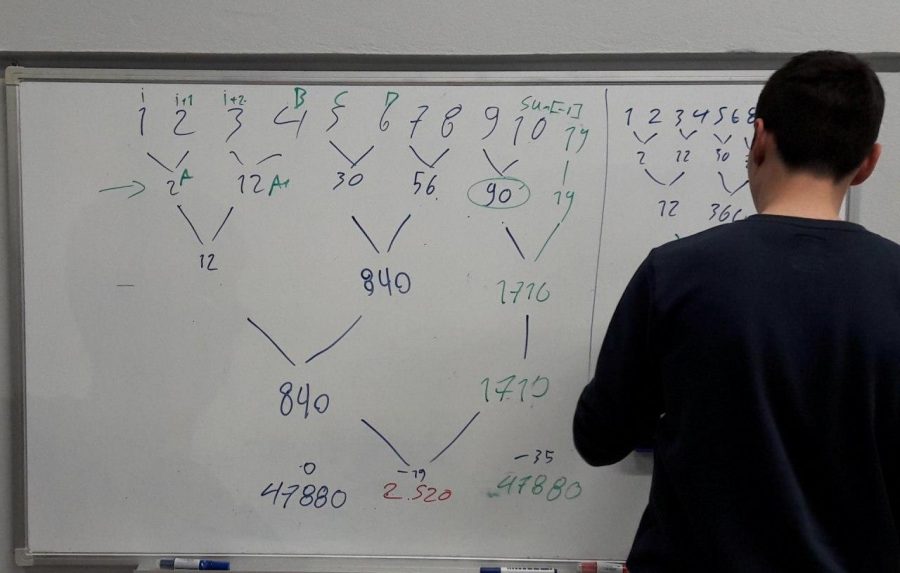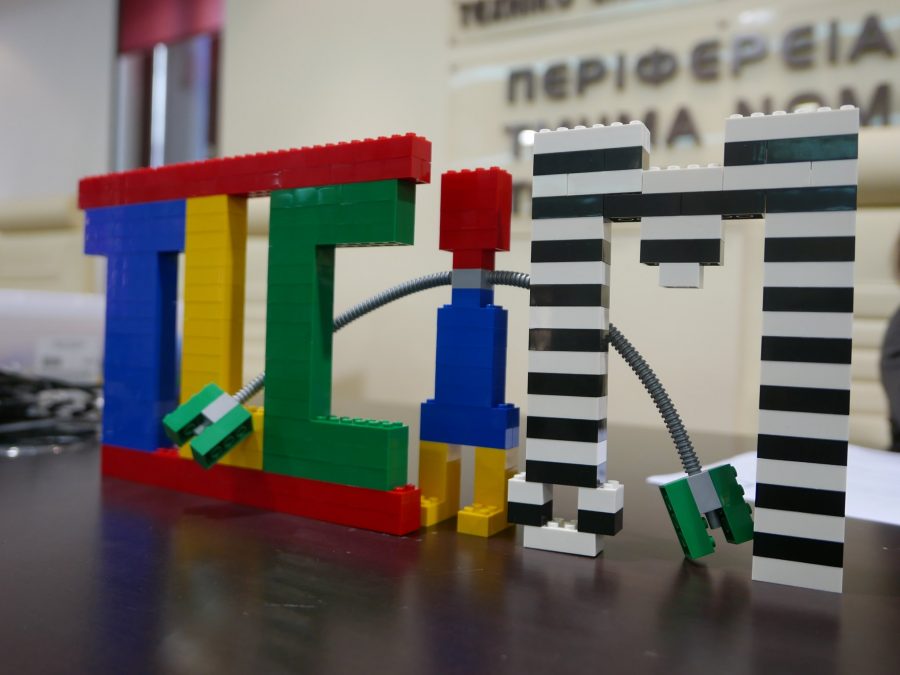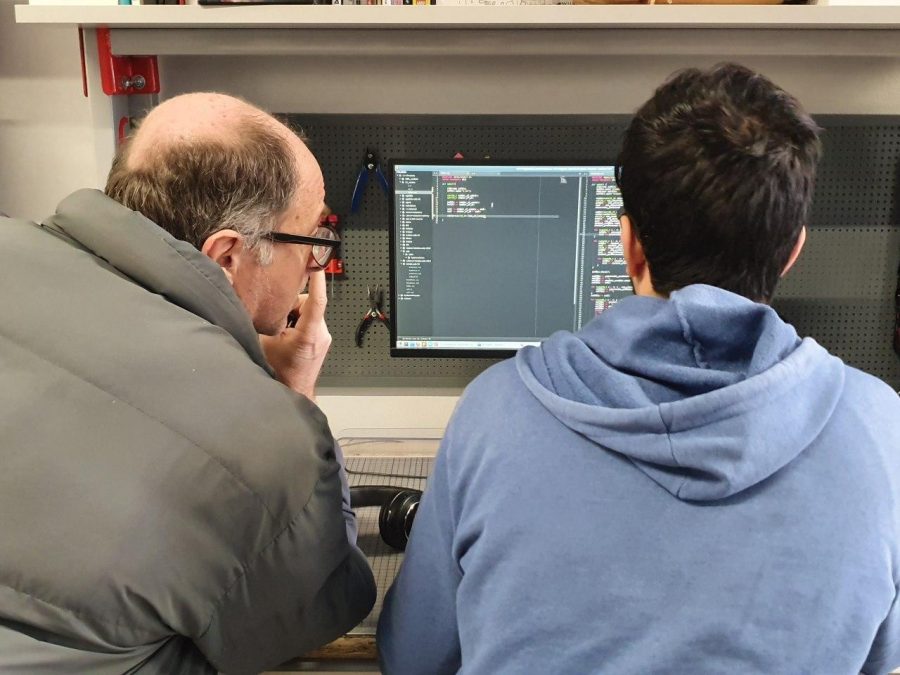Makerlab
Reinventing Education
Research Institute for Robotics
and Technology
Since its establishment in July 2017 Makerlab has opened its doors to all ages from 7 years old to adults, and more recently to kids from 4 to 6 year olds, giving them the opportunity to experience the world of technology and science. Learning Robotics begins through play. We prepare a young child to enter the world of STEM, using the most modern pedagogical methods.
With the older students we approach Robotics from different perspectives. We explore the world of Algorithms, Electronics and Automation with Programming through Experiments and cutting edge tools.
At Makerlab, children have access to a fully equipped laboratory, where, starting with Lego educational robotics packages but continuing with open electronics and programming platforms, such as arduino/dwenguino, 3d printing, etc., they have the opportunity to create their own robotic constructions.
Through robotics and computer science, young people gain the tools to understand and act in the ever-evolving world around them, to create as well as consume, to understand as well as to use, to distinguish technology from magic. To have the knowledge and skills to take on jobs of the future.
We are currently preparing students for jobs that don’t yet exist … using technologies that haven’t been invented … in order to solve problems we don’t even know are problems yet
Richard Riley
Computer science is as much about computers as astronomy is about telescopes.
Edsger W. Dijkstra
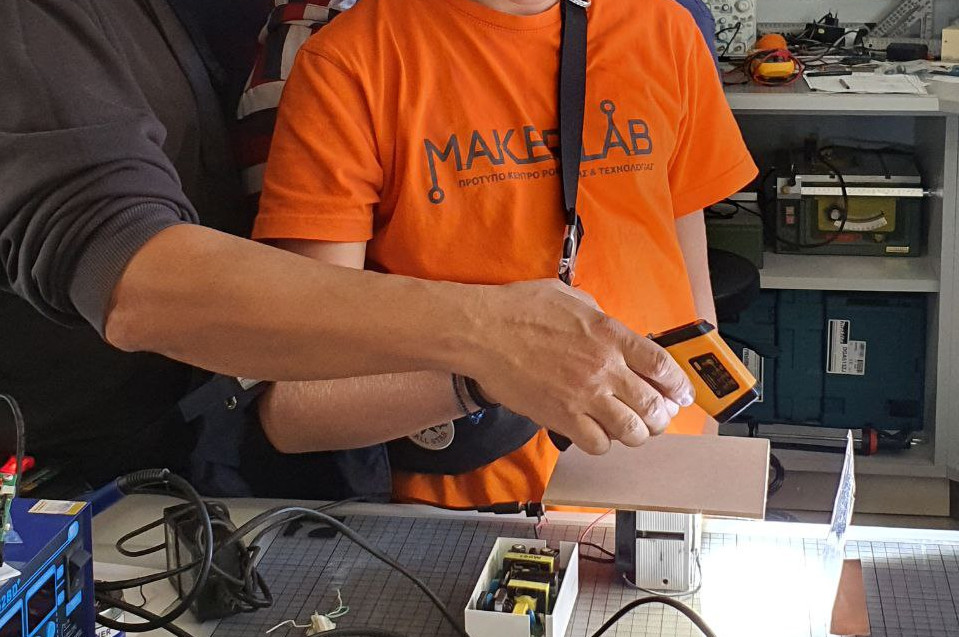
Science
Science was first formulated in Plato’s Theaetetus and denotes documented and ascertained knowledge. Science today does not differ from this original formulation, it continues to offer answers to all the questions raised by the observation of Nature (Astronomy, Cosmology, Geology, etc.), Life (Biology, Zoology, Biochemistry, etc.). a.), Society (Archaeology, Criminology, Anthropology, etc.) and every other aspect of what includes us, but with the research, experimentation and documentation required to produce valid results.
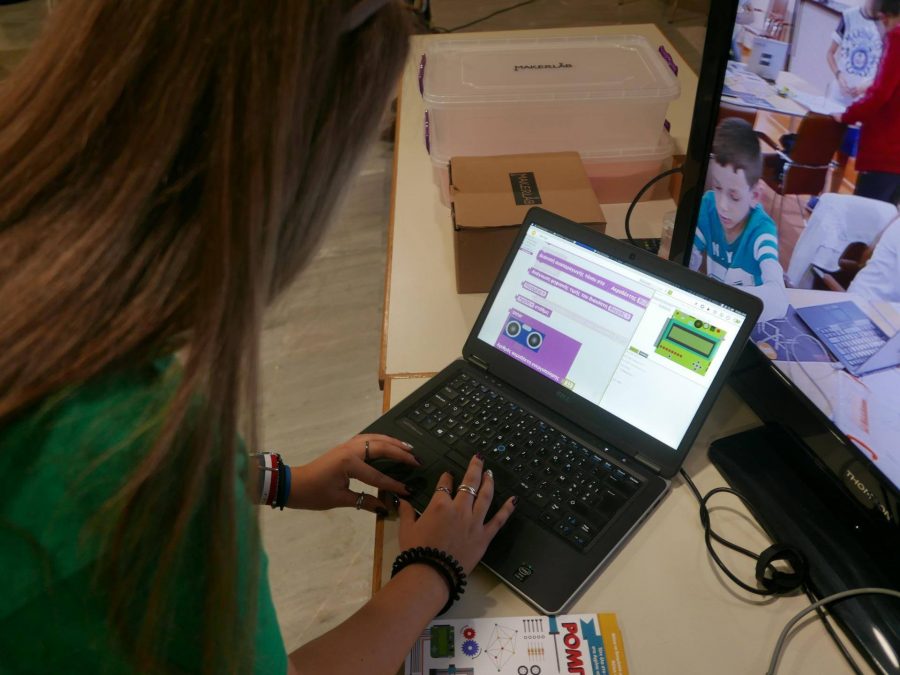
Technology
Science leads us to Technology. Technology is the application of Science to develop new means for the study of Science, but also for more practical purposes. Technology is also divided into many categories with traditional ones of Industry, Transportation and Health, but also more recent ones such as Telecommunications and Information.
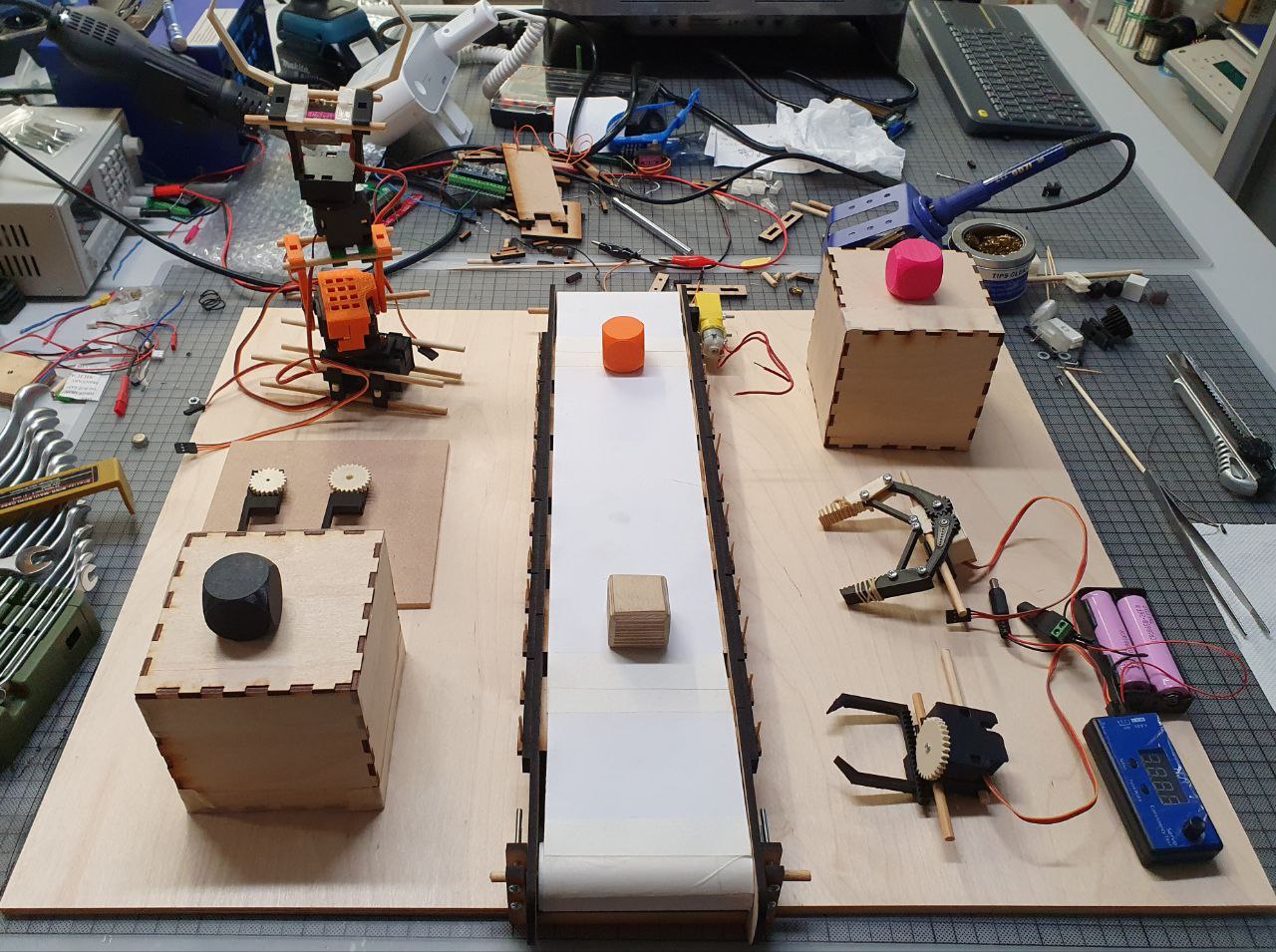
Engineering
Engineering refers to the applied Sciences, which are also categorized as Positive Sciences. This branch is mainly concerned with research, design, development and implementation of materials and processes for each sector it concerns. It is an integral part of the scientific process as it provides the tools with which research is facilitated.

Mathematics
Mathematics is the connecting link in this chain, linking theory to practice and idea to implementation. Mathematics provides us with the description and measurements for all the objects that surround us, but also the theoretical confirmation for the results that are derived.
